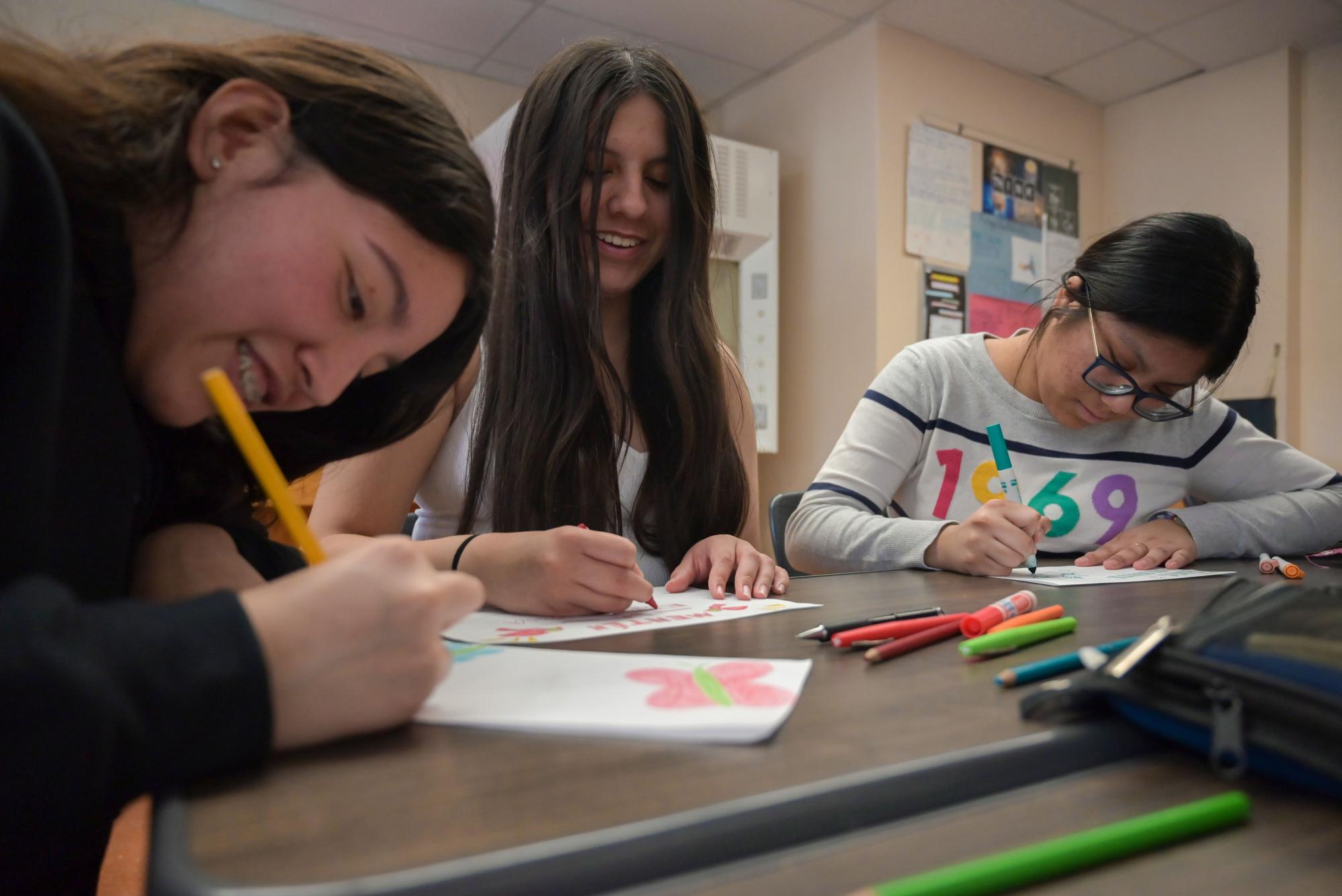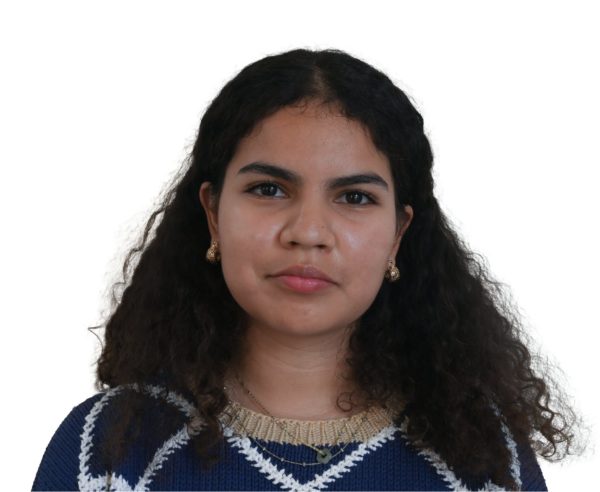Within the vibrant hum of the science building, amidst the energetic flow of students moving to and fro, exists a sanctuary in room 213, a haven pulsating with a feeling of belonging and purpose: UNIDOS.
Spanish for “United,” UNIDOS is not just a club; it’s a beacon of inclusivity that caters to Hispanic and Latin American students, providing them with a nurturing environment where their voices are heard and heritage is celebrated.
Founded by senior Melanie Arista, a first-generation Mexican American, UNIDOS became a testament to the values and pride encompassed within Hispanic culture and the characteristics of being Hispanic.
“I didn’t want to create a club centered on just one country, I wanted it to include countries of all Hispanic or Latin origin,” Arista said.
She reflects on her journey and the sacrifices made by her family to pave the way for her.
“It’s a set of values that regardless of what Hispanic country you’re from, they’re kind of shared amongst all Hispanics,” she said.
UNIDOS goes beyond borders, ensuring that every student finds a place to simultaneously share their traditions while learning about others’ customs.
Through engaging in slideshow presentations on Google Slides, the club delves into cultural events like Día de la Candelaria, a Mexican religious holiday that is celebrated with tamales and atole, a traditional hot masa-based drink. UNIDOS also recognizes influential Afro-Latino figures, fostering an environment where members can learn, emphasize and share.
Even when celebrating culture and diversity, UNIDOS doesn’t shy away from acknowledging harsh realities such as the migrant crisis at the southern border.
The club actively participates in the Letters of Love campaign launched by the Training Occupational Development Educating Communities (TODEC) Legal Center, a nonprofit organization that commits to empowering and representing marginalized immigrant communities.
The Youth group, a part of TODEC, launched the Letters of Love Campaign in May of 2018 to raise awareness and support immigrant children who were separated from their loved ones at the border and detained by the federal government in immigrant detention centers.
According to the TODEC website, the campaign has received over 10,000 letters from people across the U.S. and Spain. The letters are shipped to Perris, California, where they are processed and distributed to detention centers across California, Arizona and Texas.
What was once considered to be record-breaking, U.S. Customs and Border Protection (CBP) encountered approximately 2.38 million migrants, with 152,067 being unaccompanied minors, at the U.S.-Mexican border in the 2022 fiscal year (FY).
Of those encounters, approximately 26,898 migrants were detained in detention centers with 2,100 of them being unaccompanied children.
In the 2023 FY, the number of immigrants arriving at the southern border reached a historic high of over 2.47 million encounters, with 137,275 being unaccompanied minors.
The term “encounters” refers to two separate types of events: apprehensions or expulsions.
Apprehensions are carried out by Title 8 U.S. Code § 1226, which permits the arrest, detention or release of an “alien,” a legal term defined by the federal government as a person who is not a citizen or a national of the United States. Meanwhile, expulsions are carried out by Title 42 U.S. Code § 265, invoked by the Centers for Disease Control (CDC) during the pandemic.
Title 42 expired on May 11 of last year, ending the 38-month-old policy that gave CPB the authority to refuse entry and carry out deportations in a short period of time to migrants seeking asylum.
“Having to be separated from your loved ones at a very young age is horrible,” club member Samantha Silva said. “We can’t just let it continue to happen. By not doing anything, it’s accepting and enabling it to continue.”
The federal government defines unaccompanied foreign children as migrants under 18 years of age with no legal immigration status and no guardian to care or take responsibility for them.
In spite of this definition, some children arrive with relatives or acquaintances but are separated at the border whereas others are transported by traffickers or other migrants by car or on foot.
In collaboration with the Refugee and Immigrant Center for Education and Legal Services, researchers at the Harvard T.H. Chan School of Public Health analyzed the medical records of 165 children held at the ICE family immigration detention facility in Karnes City, Texas.
The 2024 report revealed that between June 2018 and October 2020, migrant children living in detention centers for a prolonged period of time experienced physical and psychological harm due to receiving insufficient and inappropriate medical care.
Researchers found that there was an inadequate amount of medical staff members, lack of documentation of medical care and sanitation, malnutrition, tuberculosis and widespread flu outbreaks.
Detained children had higher rates of emotional and behavioral difficulties, depression, anxiety and PTSD in comparison to children in the general U.S. population, as stated in a study featured in Science Direct.
Through the “Letters of Love” campaign, UNIDOS stands as a beacon of hope. They send a powerful message of solidarity to these children, constructing letters filled with color and words of encouragement, reminding them that they are not alone and that there are people who care, empathize and are willing to take action.
Sophomore Alison Peña and her fellow club members understand the importance of tangible action by writing personal yet universal messages of encouragement to try and give faith to the children in detention centers.
“When I’m writing cards I make sure to have a message that would be hopeful to the children in the detention centers,” Peña said. “Sometimes just to hear ‘It’s going to be okay’ isn’t enough, so I try saying something more personal in hopes that it gets through to them.”
Preferred by TODEC to be written in Spanish, each card must have color and a message that is easy for children to understand.
Beyond discussions and raising awareness, they actively engage in making a difference, one letter at a time.
“The biggest message we want to convey in these letters is hope,” Arista said.
As they continue their campaign, UNIDOS remains committed to spreading hope and love to those who need it most. With each letter penned, they send a message of resilience, reminding these children that they are valued, cherished and not forgotten.
The abridged version of this article appeared in the Spring 2024 print edition. This is an uncut version.




